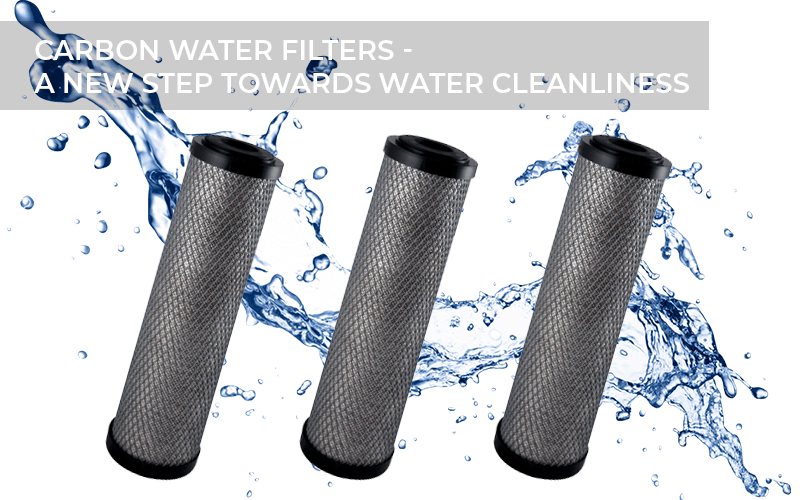We often talk about carbon filtration systems in the context of water purification, but did you know they are used in a handful of other industries as well, including air purification? Here, we will elaborate on all that, but before we do, here is a quick summary of what carbon filtration is supposed to be.
Carbon Filtration
Carbon filters usually contain granular activated carbon (GAC) or activated carbon charcoal filter. However, GACs are usually discussed in water filtration as it is beneficial for improved odor and taste in the product water.
Overall, these carbon filters are used in several different areas and industries, such as:
- Filtration for Drinking Water
- Sewage Treatment
- General Industrial Processes
- Manufacturing Distilled Beverages
- Air Purification
Filtration for Drinking Water
Carbon filtration is used in water filtration, specifically for removing most organic compounds. The treatment for drinking water uses processes such as coagulation, sedimentation, and filtration that require carbon filters because it is so effective for it. Moreover, these activated carbon filters are not just in the purification and treatment plants themselves but also present in pipes, taps, and other areas we might not know about.
Carbon filters very effectively remove compounds such as chlorine, making it safer for drinking if we use tap water. In some cases, there are even water bottles with carbon filters specifically designed to take tap water and filter out its impurities, from heavy metals and byproducts to micro-organisms within the liquid.
Sewage Treatment
The water we use in any area, such as dialysis or even water purification and treatment, generates excess wastewater that is then treated as sewage. Moreover, the water used in other industrial processes, as will be mentioned later on, contain other contaminants, and it can often be a requirement to remove as much of them as possible before they are passed into sewage drains. Wastewater treatment is an effective form of sustainable practices for water usage, and activated charcoal filters can be used for removing industrial waste from wastewater.
General Industrial Processes
Carbon filtration systems for water are also used in a number of industrial processes and systems. As carbon filters have a large surface area and high absorption capabilities, they assist in areas such as groundwater remediation, metal finishing, purifying organic molecules, and analytical chemistry—to name a few. Pharmaceutical industries use carbon filters as well as a catalyst for synthesizing chemicals, as carbon is a highly inert, versatile catalyst.
Manufacturing Distilled Beverages
Manufacturing certain drinks and beverages, such as vodka and whiskey, require carbon filtration systems to filter out organic components. Moreover, these filters are used to improve the taste and odor, as well as the color of the final product. Even juices and fruit-based beverages use carbon filtration systems, as they can be used to improve the fermentation process and texture of the juices.
Air Purification
When you burn something like a tire—which is made of rubber—you release volatile components such as smoke and harmful odor into the air. Carbon filters can be used for air and gas purification, filtering out smoke, harmful odors, and other volatile pollutants without outgassing. The carbon filters trap the volatile substances on charcoal beds, removing them from circulation in the air. The porous carbon filters absorb hydrocarbons and oil vapors, too.
Air purification is one thing that is necessary not just for industrial uses but in general everyday environments and homes. Carbon air filters are used in air purifiers, which are commonly used across most industries to clean the environment and keep the air breathable. Carbon filters aren’t the only filters available, as there are sand filters, screen filters, and cartridge filters. Each has its uses, but carbon filters are the most effective in this case.
Using Activated Carbon Filtration Systems
Activated carbon filters are not just great for removing volatile compounds but are also effective in removing odor from the air, similar to how they are used in water filtration. This also removes plenty of other gaseous pollutants. However, carbon air filters cannot remove other substances, such as mold, which may require additional types, such as HEPA filters—a type of pleated mechanical air filter.
When carbon is activated, it increases the surface area and gives the gases more chance to stick to that area. The gaseous molecules passing through the filter stick to the bed, which goes through an adsorption process. Absorption is when water is absorbed into a sponge, but if we use the same example, then adsorption would mean that the water is transferred from its previous surface or container to the surface of the sponge. So, the gases go from one surface to the bed of the carbon filter, which means they are sticking to the filter instead of being trapped by it.
The Drawbacks of Using Carbon Filtration Systems
Whether you are using them for air purification, sewage treatment, or water treatment, carbon filters have a few drawbacks that need to be addressed. The first and most important drawback is that carbon filters do not remove fine particulates. Allergens, dust, pollen, etc., are all examples of particles that carbon filters do not remove, which can often require additional steps in filtration and purification.
The second drawback to them is that they require considerable maintenance and replacements to be conducted at times twice a year. Carbon filters—depending on where and how they are used, vary greatly in terms of their longevity, and it can be difficult to determine if the carbon filter needs to be replaced or not. For example, one way to determine if a carbon filter needs to be changed is when it gives off a significantly different odor in the filtered air than it previously did. However, it can be difficult to determine this earlier. That is why most replacement guides can recommend a 6-12-month replacement period, and some might even go every three months.
Conclusion
Carbon filtration systems are used in more than just water filtration, and are more common in our lives than we think. From preparing our drinks to cleaning the air in our industrial plants and homes, carbon filters are highly useful and effective at removing organic compounds. They do have limits with longevity and removing fine particles though, as we have discussed here.





